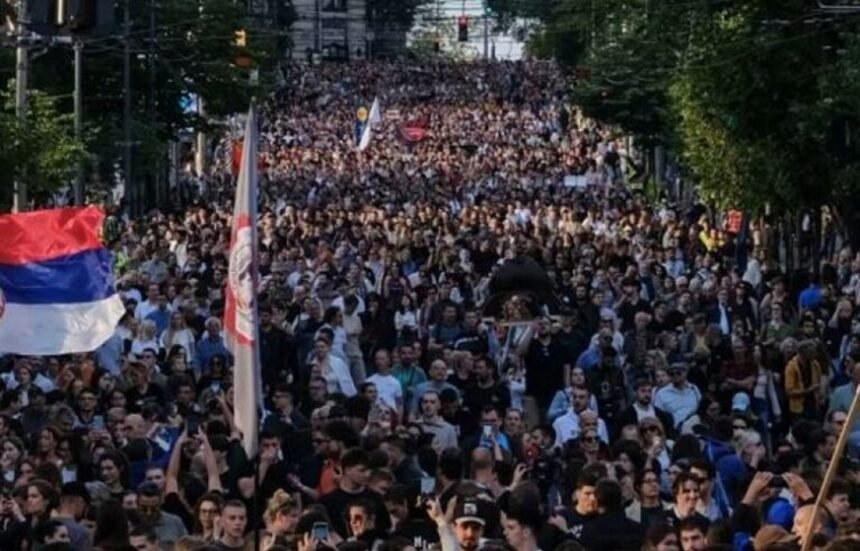Serbian student protesters have warned that if the government does not announce early parliamentary elections by the evening of June 28, citizens will be ready to take all existing measures of civil disobedience. The students made the announcement ahead of a planned rally in Belgrade on June 28, coinciding with Vidovdan, a historically significant day marking the Battle of Kosovo in 1389.
The students also demand the dismantling of a counter-protest camp in central Belgrade, established by groups calling themselves “students who want to study,” which has been in place for three months. Since late November last year, the protesting students have blocked most state universities in Serbia, expressing dissatisfaction with the country’s socio-political situation following a deadly accident at the Novi Sad railway station where 16 people lost their lives due to the collapse of a concrete shelter.
Since May, their main demand has been the calling of early elections so a new government can address their previous demands. These include the publication of full documentation regarding the reconstruction of the Novi Sad railway station, identification and prosecution of those who attacked protesters across Serbia, release of activists arrested during protests and stopping legal proceedings against them, as well as increased funding for universities.
Meanwhile, the “students who want to study” have set up camps in front of the Serbian Presidency since early March, calling on authorities to allow them to return to their universities. They have been visited several times by Serbian President Aleksandar Vučić and supported by Serbs from Kosovo, including members of the Serbian List.
The protesting students sent an open letter to the Serbian government demanding it propose to the President the dissolution of Parliament to trigger early parliamentary elections. They argued the current government’s mandate no longer reflects the political situation and stated that the regime lacks the capacity to lead the country through the biggest socio-political crisis in decades.
They also requested the Interior Ministry to stop the “reported public gathering” at the location of the “students who want to study” camp by 9 p.m. on Saturday.
The protesters announced the June 28 rally in Belgrade, expecting large participation from dissatisfied citizens, and said they cannot predict further public actions after the official conclusion of the rally. They called for their demands to be met to prevent an escalation of civic and student dissatisfaction.
The last major protest organized by these students was held on March 15, ending late at night after minor incidents to avoid escalation. According to the informal organization Archive of Public Assemblies, between 275,000 and 325,000 people attended the March 15 protest in Belgrade, with numbers possibly even higher.
On the other hand, following Vučić’s call, the “students who want to study” suspended their hunger strike until June 28, demanding the state resolve the university blockades issue.
Most opposition parties support the students’ call for early elections, while President Vučić stated he will act according to the needs of the country and people, making decisions based on circumstances.
Serbia’s government, led by Prime Minister Miloš Vučević, fell in late January. The new government, led by Goran Macura, was elected in mid-April. During his parliamentary presentation, Macura emphasized Serbia’s fatigue with divisions and blockades, calling for social harmony through dialogue, tolerance, work, and value-building, prioritizing the normal functioning of schools and universities.
However, the protesting students believe the current government, dominated by Vučić’s Serbian Progressive Party, lacks the capacity to lead the country. They argue recent protests have delegitimized the government, calling again for early parliamentary elections, viewing them as the only solution to the crisis amid widespread institutional distrust.







